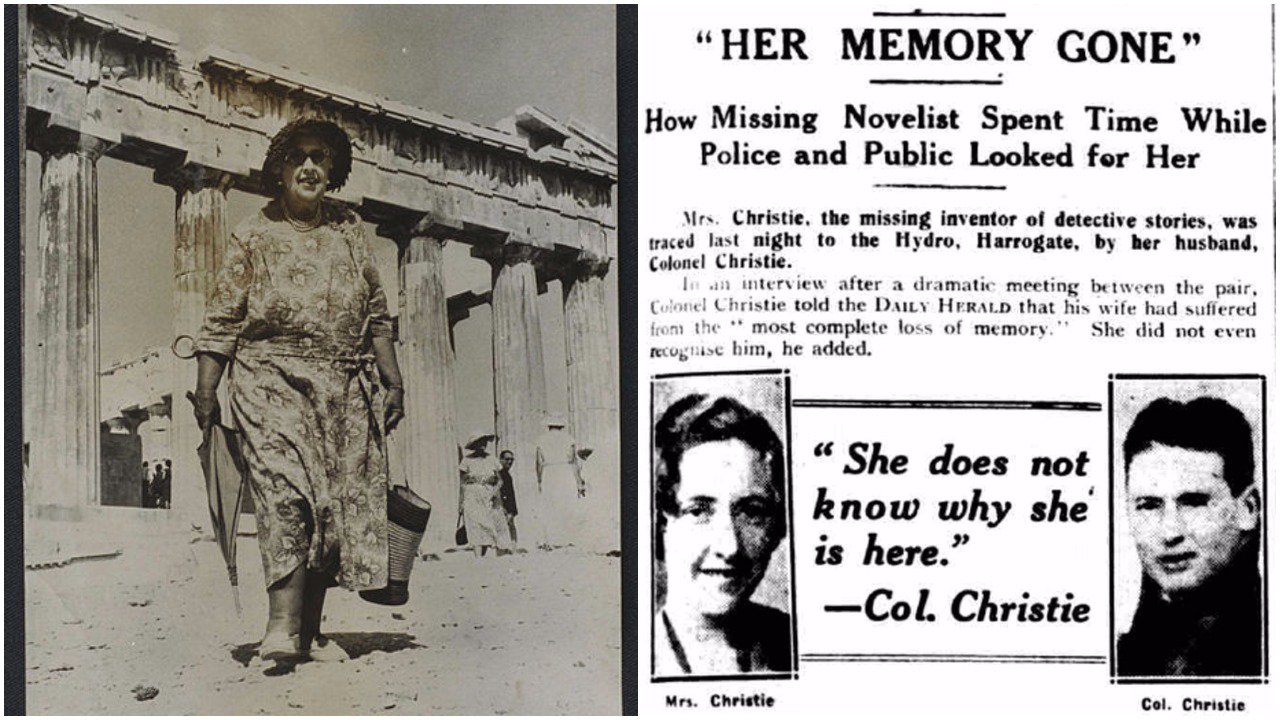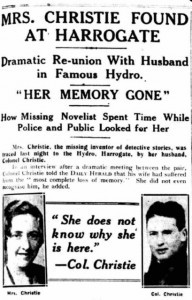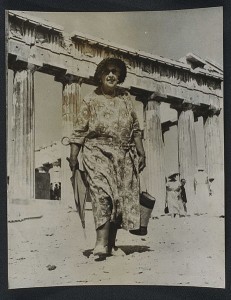Along with Arthur Conan Doyle, Agatha Christie was the central figure of British detective fiction: legendary detectives Hercule Poirot and Miss Marple were products of her exceptional imagination.
She rose to prominence during the early 1920s, at a time known today as the “Golden Age of Detective Fiction”, and is still regarded as one of the most influential crime writers of all time.
Her life was generally peaceful, although she suffered occasional depressive episodes. She was in her early 30s when she became famous, and enjoyed many privileges of the English upper class until the end of her days. However, one curious episode from her life somewhat resembles the mysterious complexity of her crime narratives.
Christie’s maiden name was Miller; she acquired her famous surname in 1914 when she married a British businessman named Archibald Christie. Their marriage was harmonious until 1926, when Archibald filed for divorce and announced that he was in love with a woman named Nancy Neele. On 3 December that year, Archibald left the couple’s home to spend the weekend with his mistress. That same evening, Agatha Christie disappeared.
Her car was found the next day near a quarry. Her driver’s license and some of her clothes were found in the car, and the media immediately suspected that she had been kidnapped. Almost 20,000 people joined the county-wide search, but there was no trace of Agatha. One London newspaper even offered a reward of one hundred pounds to anyone who could provide any information of her whereabouts, but no one came forward.
Within a few days, the whole world learned of Christie’s disappearance, and her readers were devastated. Many suspected that she was a victim of some macabre plot that resembled her own detective stories. Sir Arthur Conan Doyle, who was 68 at the time, was genuinely afraid that Agatha Christie had been murdered. He hired a spirit medium to try and find her, but his efforts failed.
Christie was found 10 days after her disappearance, in a hotel in Yorkshire where she was registered as “Mrs Teresa Neele”. Several doctors examined Christie and determined that she suffered a major depressive episode which caused a temporary memory loss. Since she was known to have suffered from depression in the past, a large portion of the general public accepted this explanation.
However, many people were skeptical, and nowadays there are many theories as to the true nature of her disappearance. Some believe that she wanted to punish her husband for infidelity by putting him in the public spotlight. The fact that somewhat supports this theory is that Christie used the surname of her husband’s mistress when she checked into the Yorkshire hotel where she was found. Others were convinced that her disappearance was actually a publicity stunt to attract even more readers. Christie later married archaeologist Sir Max Mallowan and remained happily married until her death in 1976.
The true events surrounding her disappearance remain unknown because she completely avoided mentioning the incident in her official autobiography. A 1979 film called “Agatha” speculates that the background of Christie’s disappearance was rather dark. The film stars Vanessa Redgrave, Timothy Dalton, and Dustin Hoffman, and postulates that Christie in fact intended to commit suicide and frame her adulterous husband for her own murder.
This fictional resolution to the story of Christie’s disappearance outraged Christie’s heirs, who even sued the film’s creator Michael Apted, but their lawsuits were unsuccessful because the film was clearly a piece of speculative fiction.
Unlike mysteries from Christie’s stories, which are usually solved by her cunning detectives, the real mystery from Christie’s own life is likely to remain unknown forever.
Ask me anything
Explore related questions







